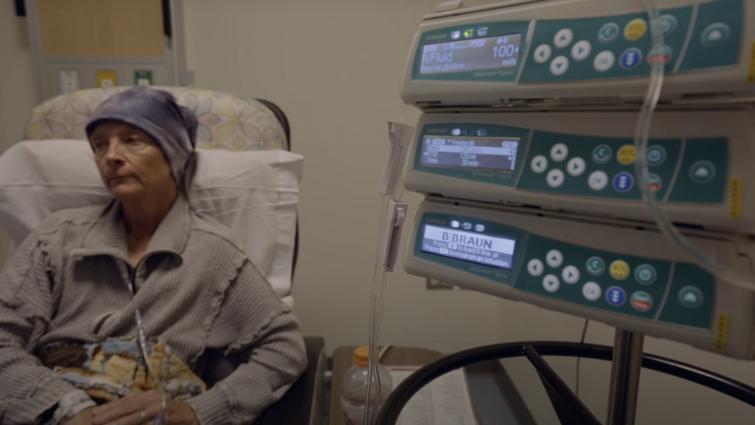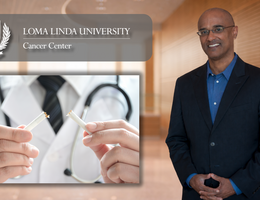

The courage to join a clinical trial can offer new hope but also help advance treatment options for others facing cancer.
Clinical trials are the driving force behind every breakthrough in cancer treatment, and at Loma Linda University Cancer Center they represent both scientific progress and profound human generosity.
Each participant in a clinical trial helps shape the future of oncology care. “All the current standards of care that we use in cancer treatment were once research studies,” says Gayathri Nagaraj, MD, associate director for clinical research at the Cancer Center. “Clinical trials generate the evidence that becomes tomorrow’s standard of care.”
Personalized care
As a breast medical oncologist, Nagaraj leads research exploring new ways to personalize breast cancer treatment. “Breast cancer isn’t one disease,” Nagaraj says. “We have hormone-positive, HER2-positive, and triple-negative breast cancers, each with its own molecular drivers. Clinical trials help us target those drivers more precisely, so treatments become more effective and less toxic.”
Clinical trials progress through multiple phases, from small early-stage studies to test safety to large-scale trials that confirm benefit before a treatment becomes widely available. Each one moves the Cancer Center closer to providing better options for patients.
Safety and ethical standards
Every clinical trial follows specific eligibility criteria to ensure safety and accuracy. Patients at the Cancer Center are carefully screened based on individual and cancer characteristics. Participation is always voluntary.
“Our research coordinators guide patients through the process,” Nagaraj says. “They review the study’s purpose, answer questions, and ensure patients have time to think before providing informed consent.”
Nagaraj emphasizes that each study follows rigorous ethical and regulatory standards to protect participants. From institutional reviews to national regulators, every trial is held to the highest ethical standards. Patient safety and well-being always come first.
Despite these safeguards, Nagaraj acknowledges that some skepticism persists. “There’s a lot of misinformation out there,” she says. “But our goal in clinical research is to generate useful knowledge that benefits society. Participants accept risks and burdens so others can benefit, that’s incredibly meaningful.”
Selflessness behind discovery
Every patient who joins a clinical trial demonstrates remarkable selflessness. Whether or not a patient personally benefits, they are contributing to knowledge that will help future patients.
“It takes a very special person to participate in research because there are unknowns. They are thinking beyond themselves, and that’s inspiring.” Nagaraj says.
One example of this is the story of a patient, Tanis Earle, whose courage to join a clinical trial not only offered her new hope but also helped advance treatment options for others facing breast cancer. Her experience reflects the very heart of clinical research, patients, and care teams working together to shape the future of medicine.
That sense of purpose fuels Nagaraj’s passion for research. Over the last decade, she has seen dramatic advances in cancer treatment and believes even greater progress lies ahead.
As oncology continues to evolve, Nagaraj sees promise in new targeted and molecularly guided therapies and hopes to expand access and awareness of clinical research opportunities. Clinical trials push the boundaries of what is possible.
“They help us understand cancer better, treat it smarter, and ultimately save more lives.” Nagaraj says.
Learn more
Patients interested in learning more about current or upcoming clinical trials can visit our website or explore opportunities available around the world.

